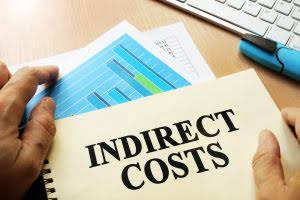Hotel Budget Plan: Essential Steps for Small Hotels

You get to prioritize what’s needed to be accomplished bookkeeping and plan it way ahead (like remodeling the hotel entrance or fixing a broken elevator). With TRG International Blog, it is our mission to be your preferred partner providing solutions that work and we will make sure to guide your business to greatness every day. Discover TRG’s comprehensive resource portal for the hospitality industry here. Hoteliers said they would be allocating less budget to staff training and recruitment – ranked at 28% in comparison – indicating the need to spend more money on newer skills such as SEO. If you treat your contingency fund as an expense, you’ll be prepared for unexpected expenses.
Administrative and general expenses
Many businesses in the hospitality industry rely on automated reservation and billing applications. They also invest in branded domain names and websites (along with plug-ins such as chatbots). This category includes every fresh and processed product you buy on a monthly basis.

What are the steps in the hotel budgeting process?
This blog post will explore why budgeting is crucial, discuss different types of budgets used in the hospitality industry, and outline the steps involved in the hotel budgeting process. A hotel budget is a financial plan that outlines expected revenue and expenses, helping hoteliers allocate resources strategically to meet financial goals. Creating a solid hotel budget is crucial for small hotels to stay competitive. A well-planned budget helps hoteliers manage revenue and expenses, focusing on occupancy rates, variable costs, and capital expenditures. With accurate forecasting, hoteliers can allocate resources effectively and optimize pricing to support revenue management. The capital budget focuses on long-term investments aimed at improving the hotel’s physical assets, such hotel budget as renovations, technology upgrades, and property enhancements.
The Importance of a Budget in the Hospitality Industry
Following are the two budgeting methods that have been used and proven successful in the hotel industry for budget forecasting. It’s expected for the hotel management industry to deal with diverse expenses. Hotel budgeting and forecasting are also important to know which areas need improvement. You don’t just study one department; you scrutinize every section to list down the budget items. This timely budget forecasting also helps you gather the finances required.

Riu Plaza Manhattan Times Square
- You don’t just study one department; you scrutinize every section to list down the budget items.
- By focusing on the three key types of budgets—operational, capital, and cash flow—hoteliers can make informed decisions and allocate resources efficiently.
- Here the value of the budget is allowed to change depending on the other conditions.
- Rooms and Food & Beverage are typically the largest departments, with other departments summarized on the operating statement.
This should be based on your historical data, market trends, and any planned marketing or sales initiatives. While it can be difficult to precisely predict revenue, effective revenue management is a key part of creating a hotel budget. Creating a detailed revenue forecast is a critical step in the hotel budgeting process. To develop an accurate revenue forecast, hoteliers should consider various factors, such as historical data, market trends, and planned marketing or sales initiatives.
- For room revenue, forecast occupancy rates, ADR (Average Daily Rate), and RevPAR (Revenue per Available Room) to inform your budget.
- For preparing these spreadsheet reports, they consider terms like occupancy rate and average daily rate for both on and off-seasons.
- If your hotel has been patching a problem for years, it will need to be corrected eventually.
- At last, we understand how important security and privacy are to your business as your financial data is also interrelated with your suppliers’ and customers’ confidential information.
- To avoid this, base your forecasts on realistic data that considers all market conditions and past performance.
- These metrics are directly tied to hotel revenue and should be adjusted based on market trends, local events, seasonality, and competitor pricing.
Hotel budgeting tips for labor expenses

Look for expense trends in each department and for each line Accounting for Churches item on the budget. Pay attention to housekeeping costs, food and beverage expenses, front-desk staffing needs, fluctuations in electric bills, water usage, and other areas. Some hoteliers forget to include this line item in their budget and find themselves struggling to fill a hole of missing revenue needed to honor team member incentives.

Typical Hotel Expense Allocation
A Property Management System (PMS) helps track expenses and ensure budget forecasts align with actual performance. Regularly review the hotel’s budget and ensure all departments are aligned with the financial targets. This will require effective communication across the hotel, from management to staff, ensuring that everyone is on the same page regarding expenses, revenue goals, and operational costs. Collaboration across teams is vital to adhering to the budget and achieving long-term profitability in the competitive hospitality industry.
When listing your capital expenses, ensure that you keep sight of the bigger picture. Calculating the ROI that this big expense can generate will make it easier to get the budget approved. “If we finish January, we would have our budget for the remaining 11 months and one month of actual performance. What we do with that is incorporate it into a 30, 60, 90-day forecast from that point in time,” Lund said. For example, if you want to buy five new point-of-sale terminals and they are $5,000 each, you can’t put that number through to your P&L – it’s too big.


دیدگاه های نامرتبط به مطلب تایید نخواهد شد.
از درج دیدگاه های تکراری پرهیز نمایید.